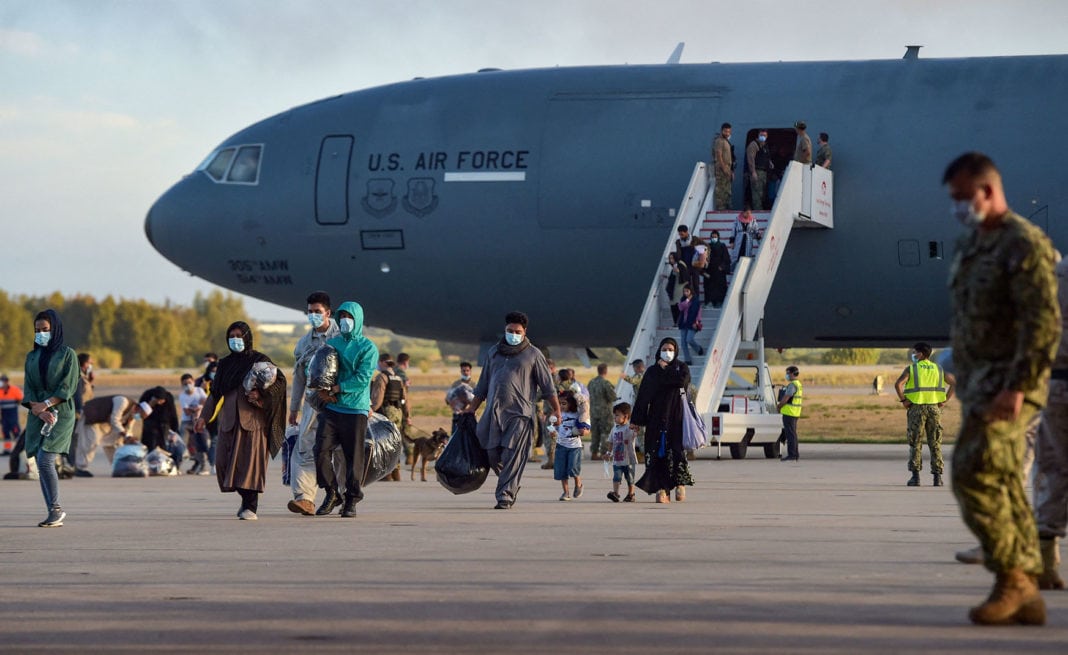The images of desperate Afghans clinging to US Air Force planes taking off will undoubtedly be engraved in the collective memory and cause lasting damage to the image of the United States. However, they obscure the view of the essentials associated with the hasty withdrawal. An analysis by former security policy expert Brigadier General Walter Feichtinger.
The inglorious and, for many Afghans, devastating withdrawal of Western forces has not yet been properly dealt with before questions are already being asked about the medium to long-term effects of the change of power. The most pressing questions are: How stable will Afghanistan be under Taliban leadership? And will the country once again become a safe haven for terrorist organizations such as al-Qaeda or IS? Both aspects are of vital importance, particularly for the neighboring states and Moscow. It is doubtful that the Islamist putschists will be able to keep their hardliners and fanatics under control and ensure order and security throughout the country in the long term. In any case, China is keen to fill the vacuum that has been created and Russia, Pakistan and Iran also want to gain influence. It will therefore primarily be up to them to ensure stability in their own best interests – the USA will no longer be able to do this. With the end of the Afghanistan mission, the era of extensive (humanitarian) interventions also seems to have come to an end for the time being. The moral pressure, particularly in the West, to “do something” in the event of crimes against humanity or genocide will remain. However, ambitions to topple regimes, reform political systems and rebuild states have been severely curbed after Kosovo, Afghanistan, Iraq and Libya. In addition, modern weapons systems such as combat drones, missiles or cruise missiles make it possible to deter, intimidate or directly combat unpopular regimes or terrorist organizations from a distance. It remains to be seen whether the desired effects can actually be achieved or whether “boots on the ground” will be needed to solve the problem if the worst comes to the worst. However, the deployment of tens of thousands of Western soldiers to end internal wars somewhere far away or to guarantee security during reconstruction will not be happening any time soon.
“Afghanistan is a ‘pawn’ of the USA’s realigned foreign and security policy!
”
With the withdrawal from Afghanistan, the geostrategic focus of the USA is now even more on the Indo-Pacific. In order to save the immense financial costs and enormous military resources required to maintain the Afghanistan mission, President Joe Biden even accepted the image disaster of the hasty withdrawal. Since the killing of Osama bin Laden in 2011 at the latest, the US expenditure for the deployment in the Hindu Kush no longer bore any justifiable relation to the strategic benefit. Certainly – the loss of the Afghanistan base as a central hub in southern Central Asia hurts, but should be bearable. The formation of the Auku security alliance (Australia, United Kingdom, USA) in the Pacific in September underlines the shift towards the Indo-Pacific region. It should also be noted here that Europe has thus been duped twice within a very short space of time as a “vicarious agent” of the USA and should think about something for the future. Conclusion: The withdrawal of the West is dramatically changing the situation in Afghanistan, but will not represent a turning point in global developments. Although the USA has suffered a loss on the geopolitical chessboard, it has also opened up the possibility of new moves elsewhere.
It would appear that Afghanistan is thus becoming a “pawn” of the USA’s realigned foreign and security policy.










